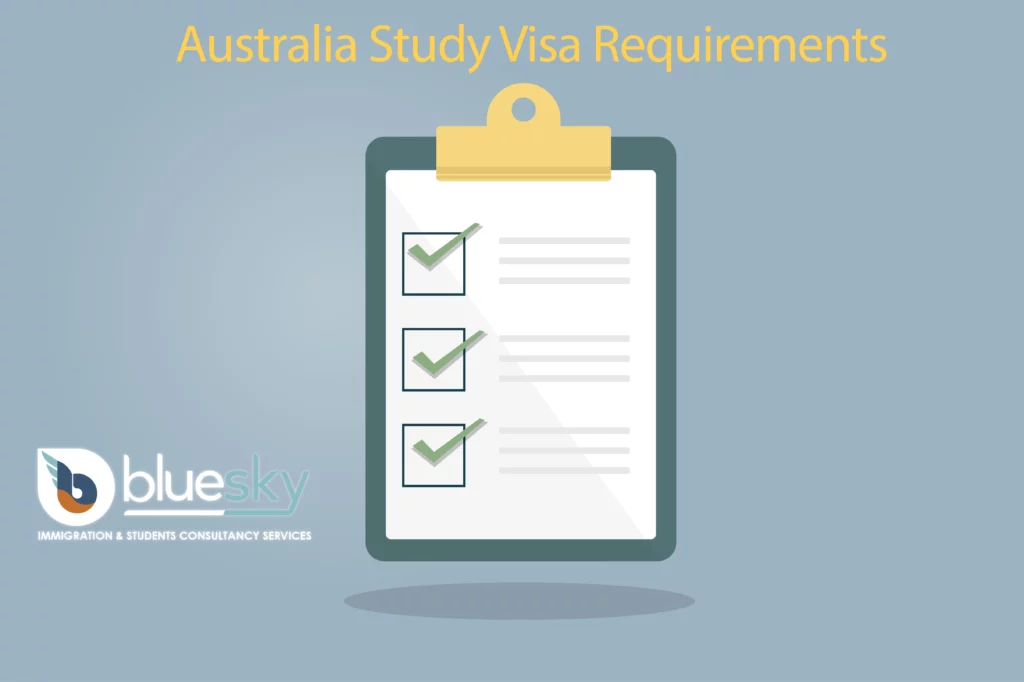Top Reasons for Australian Student Visa Rejections in 2024
- May 3, 2024
- Posted by: Sandeep
- Category: Study in Australia

Aiming to study in Australia? Land of sunshine, world-class universities, and vibrant student life – it’s no wonder Australia beckons international students. But securing that coveted Australian student visa can be a hurdle. Understanding the latest reasons for rejection can significantly boost your chances of success. This blog equips you with the knowledge to navigate the process smoothly.
Table of Contents
- 1. The Genuine Student (GS) Requirement: Demonstrating Your True Intentions
- 2. Incomplete or Inaccurate Documentation: Ensuring Attention to Detail
- 3. Financial Capability: Demonstrating Sufficient Funds
- 4. Academic Qualifications: Meeting Entry Requirements
- 5. English Language Proficiency: Meeting the Language Benchmark
- Beyond the Common Causes: Additional Considerations
- Conclusion: Planning for Success
- Expert Contact Form
1. The Genuine Student (GS) Requirement: Demonstrating Your True Intentions
The Genuine Student (GS) requirement, implemented in March 2024, replaces the previous Genuine Temporary Entrant (GTE) requirement. Australian immigration authorities still want to be convinced that your primary purpose is to pursue genuine studies in Australia and that you intend to return to your home country upon completion. However, the GS requirement focuses on a series of targeted questions within the online application form.
Read more About Genuine Student (GS) requirement
Strategies to Strengthen Your GS Application:
- Answer the online application questions comprehensively and honestly. Address each question directly, providing clear and detailed explanations for your educational goals and future plans.
- Demonstrate strong ties to your home country: This can include family ties, property ownership, or job commitments that showcase your intention to return after completing your studies.
- Highlight a clear study pathway: Outline a logical progression for your studies, including relevant academic transcripts and how your chosen course aligns with your career aspirations in your home country.
2. Incomplete or Inaccurate Documentation: Ensuring Attention to Detail
Missing or incorrect documentation is a frequent cause for visa rejection. Australian immigration has strict requirements, and any discrepancies can raise red flags.
Strategies for Accurate Documentation:
- Meticulously review the Department of Home Affairs website (https://immi.homeaffairs.gov.au/) for the latest student visa document checklist.
- Double-check all submitted documents for accuracy and completeness.
- Seek guidance from a registered migration agent or education consultant to ensure your application adheres to all regulations.
Read more about Australia Student Visa Requirement
3. Financial Capability: Demonstrating Sufficient Funds
Australian immigration needs to be assured that you have sufficient financial resources to support yourself throughout your studies. This includes tuition fees, living expenses, and Overseas Student Health Cover (OSHC).
Strategies for Demonstrating Financial Capability:
- Provide comprehensive documentation: Bank statements, scholarships, or sponsorship letters showcasing your ability to cover all expenses.
- Factor in living costs: Research and factor in realistic living expenses in your chosen city.
- Consider income sources: Include details of any part-time work options you plan to pursue in Australia (as per student visa regulations).

Learn nore about living cost of Australia
4. Academic Qualifications: Meeting Entry Requirements
Australian institutions have specific academic entry requirements for each course. Not meeting these requirements can lead to a visa rejection.
Strategies for Meeting Academic Requirements:
- Research course requirements thoroughly: Ensure your previous academic qualifications meet the minimum entry standards for your chosen course.
- Consider bridging courses: If your academic background doesn’t perfectly align, explore preparatory or bridging courses to bridge the gap.
- Provide strong academic transcripts: Highlight your academic achievements through official transcripts and certificates.
Get free assistance for Australia Acadmic Requirement
5. English Language Proficiency: Meeting the Language Benchmark
Demonstrating adequate English language proficiency is crucial for academic success and visa approval. You must meet the minimum score on internationally recognized tests like IELTS or PTE.
Strategies for Meeting English Language Requirements:
- Enroll in English language courses: Improve your English skills before applying for a visa, targeting the specific test required.
- Prepare for the language test: Utilize official study materials and practice tests to ensure a successful outcome.
- Meet or exceed the minimum score: Aim for a score that surpasses the minimum requirement, demonstrating your ability to cope with academic demands.
Beyond the Common Causes: Additional Considerations
- Health Requirements: You may need to undergo health checks to ensure you meet Australia’s public health standards.
- Character Requirements: A criminal record could impact your visa application.
- Visa Application History: Previous visa rejections can influence future applications.
Conclusion: Planning for Success
Applying for an Australian student visa requires meticulous planning and attention to detail. By understanding the latest reasons for rejection, you can effectively prepare a compelling application that demonstrates your genuine intent as a student and your ability to thrive in Australia’s education system. Remember, seeking professional guidance from migration agents or education consultants can significantly increase your chances of obtaining a successful visa outcome.
Please note: This blog post provides general information only and does not constitute immigration advice. For specific guidance, consult expert feel free contact
Expert Contact Form
Disclaimer:
The information contained on this blog post is for informational purposes only and is not intended to be a substitute for professional advice. And the information provided on this blog should not be construed as professional advice.
While I strive to provide accurate and up-to-date information, I cannot guarantee that all information is complete or error-free. You should always consult with a qualified professional before making any decisions based on the information contained on this blog post.
